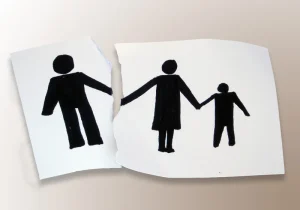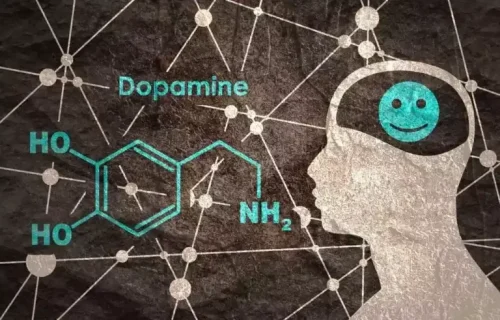
It can be difficult to determine if a drug addict truly loves someone, or if they are using them in some way to support their addiction. It is important to understand the nature of addiction and how it can affect the dynamics of a relationship. This journey through the complexities of love in the shadow of addiction highlights not just the struggles but also the profound possibilities for recovery and renewal. It reaffirms that, while addiction may temporarily obscure an individual’s ability to love and be present, it does not erase their fundamental capacity for connection and affection. With compassion, understanding, and the right support, there can an addict love you is a pathway to rekindling the depth and authenticity of these connections.

Why an Addict Can’t Love You
- To an untrained observer, it is easy to believe that a people pleaser is sincere and unselfish.
- Many drug addicts may find it difficult to express their feelings, but this does not mean that they are not capable of loving someone.
- At Gateway Foundation, we offer addiction education and support for families facing addiction.
- This distortion can make it challenging for an addict to connect with others on an authentic and emotionally intimate level.
- Supporting someone with drug addiction can be challenging but there are ways to help.
When your self-care is suffering, or you are not focusing on all your relationships, causing yourself to give all your attention to someone else in an unhealthy way, that is codependency. Codependency leads to enabling; it hurts the whole family and causes the others in your family to take on unhealthy roles. What the other family members will find out later is their resentments were not with the person with alcohol, drug, or mental health problems. alcohol rehab What comes out is that the resentments were with the codependent enabler who gave all their attention to one person and no longer provided love, affirmation, and attention to the others equally. As a result of the family taking on unhealthy roles, the only person who wins in the end is the person who needs help.
What are the benefits of involving partners in addiction treatment?
By seeing addiction as a disease rather than a choice, it becomes possible to approach the relationship with compassion and patience, potentially saving it from the strain caused by addiction. Seeking professional help and support from Lantana is a critical step in rebuilding relationships that have been affected by substance abuse. It’s easy to lose yourself in the chaos of addiction, so spending time for yourself is crucial. Whether it’s pursuing hobbies, exercise, or mindfulness practices, self-care can help you navigate the journey with more resilience. However, addiction can make it very difficult for an addict to love someone in the way that you need to be loved. Wondering if your partner is struggling with drugs, alcohol, or other substance use disorder?

Learn About Addiction Treatment at Gateway Foundation
The non-addicted partner may feel disregarded, unsupported, and unimportant, leading to feelings of anger, sadness, and resentment. Simultaneously, the addicted individual may become isolated from their loved ones as their substance use takes center stage, resulting in a breakdown of trust and hindered communication. Understanding the self-centered nature of addiction is essential for addressing the challenges it presents in relationships. It highlights the necessity for comprehensive support, including therapy, counseling, and addiction treatment, not only for the individual with addiction but also for their loved ones.
Why an Addict Can’t Love You: Understanding the Impact of Substance Abuse on Relationships
Partners can provide emotional support, help with practical tasks, and provide accountability to ensure the addicted person is staying on track with their recovery goals. They can also help identify any potential triggers and provide guidance on how to manage them. Participating in couples therapy and other support services can help both partners strengthen their communication skills, rebuild trust, and create a more stable and loving environment in which to heal and grow. In addition, promoting healthier relationship dynamics can be achieved through engaging in open and honest communication, establishing boundaries, and seeking assistance from a qualified therapist or support group. Codependent relationships often involve excessive caretaking and a loss of personal identity as one partner focuses primarily on the needs of the addicted person.

- Before an alcoholic can become honest and unselfish, have healthy relationships, and love someone, they first have to understand their behaviors, perceptions, and intentions.
- Someone who is addicted to drugs may struggle to show affection, and may not be able to demonstrate the same kind of emotional commitment that a person in a healthy relationship would.
- Couples therapy addresses underlying issues and provides tools for effective communication.
The cost of sustaining an addiction, coupled with potential job loss and decreased productivity, can deplete a family’s resources, leading to stress and conflict within the relationship. Financial insecurity may force loved ones into positions of hardship and sacrifice, further straining the relationship. When financial issues dominate a relationship’s dynamics, it becomes challenging to focus on the emotional aspects of love, as survival and stability become the primary concerns. Addiction, characterized by the compulsive use of substances or engagement in behaviors despite adverse consequences, is a chronic brain disorder that alters the very architecture of desire and reward. This alteration can profoundly impact an individual’s emotional landscape, decision-making processes, and, crucially, their ability to love and be present for others.

Moreover, the role of compassion cannot be overstated—compassion for the self and for each other. Understanding that relapse https://ecosoberhouse.com/ can be a part of the recovery journey, and maintaining a stance of empathy and support through setbacks, underscores the belief in the possibility of change. Once you stop your enabling behaviors, you can then begin to truly help your loved one.
- This question plagues many relationships where substance abuse takes center stage, overshadowing the emotional connection between partners.
- Certain things can cause your dopamine levels to increase, such as eating a cheeseburger, drinking alcohol—and sexual arousal.
- Your abuser, whether a parent or close family friend, probably become more irate as you attempted to resist.
- Recognizing the need to break the cycle of enabling and seeking professional help and support can be crucial steps toward healing both the individual and the relationships affected by addiction.
- Some of these tendencies may resemble an “addiction,” so to speak, because they lead you to fixate on someone else as a means of avoiding anxiety and other unwanted emotions.
Staying with someone, even when it’s unhealthy
If you are in a relationship with an addict, it is vital to seek professional help. Codependency in a relationship with an addict is a situation where one partner has strong physical or emotional needs and their partner devotes much of their time to addressing those needs. Recognizing these characteristics is crucial in addressing codependency and working towards a healthier, more balanced relationship dynamic. So focus on your life and explore what might fulfill you, from new hobbies to career changes, traveling, or meeting new people. For instance, spending time away from someone with an addiction can give you the necessary time to reflect on your life, partake in your favorite hobbies and care for your health.
- After all, how do you repair a relationship and its dynamics if you don’t understand the reasons for your choice?
- With extensive experience in the field of addiction treatment, Francisco is dedicated to helping individuals access the resources they need for successful recovery.
- In addition to seeking professional help, couples can also benefit from joining support groups and engaging in various activities that promote emotional connection and trust-building.
Share is Care

They may look unfavorably on your relationship with a recovering addict until they understand the nature of addiction and the promise of recovery. By learning about addiction’s impact on love and relationships, we can better support our loved ones through their recovery journey. Addiction also numbs emotions, as individuals often use substances as a way to cope with difficult feelings or experiences.
Unless a family is willing to accept this and address it, the chances of growth and change are far less than average. Before a family and the intended patient can improve the situation, they both must be willing to let go of their old ideas, behavioral patterns, and beliefs. A substance user wants to be a better person and still use alcohol or drugs, and you can’t have both. A family wants things to change and still wants to stay in control and hold onto their unhealthy role in the family system, and they, too, cannot have both.

